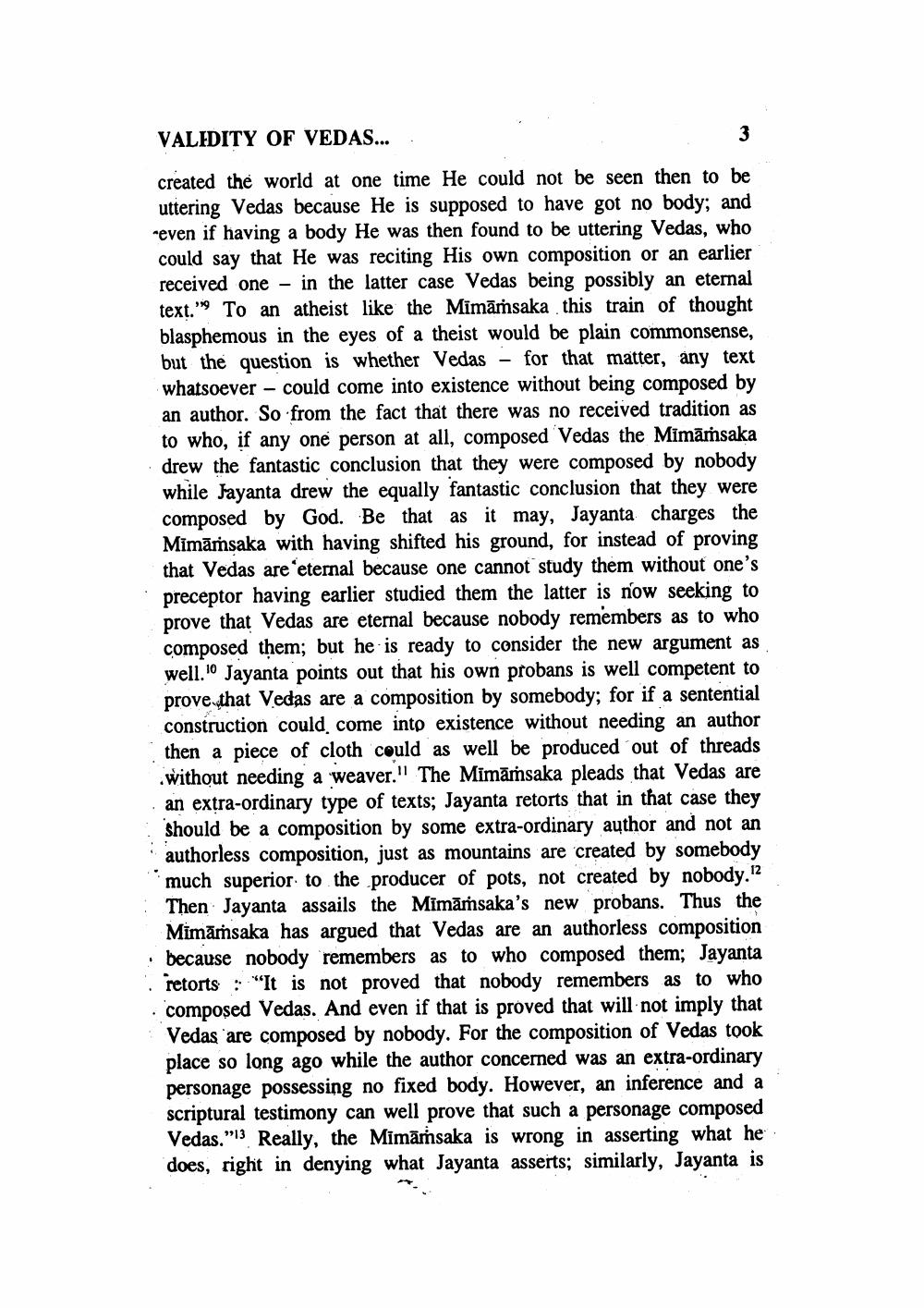________________
VALIDITY OF VEDAS...
3
created the world at one time He could not be seen then to be uttering Vedas because He is supposed to have got no body; and even if having a body He was then found to be uttering Vedas, who could say that He was reciting His own composition or an earlier received one - in the latter case Vedas being possibly an eternal text." To an atheist like the Mimāṁsaka this train of thought blasphemous in the eyes of a theist would be plain commonsense, but the question is whether Vedas – for that matter, any text whatsoever - could come into existence without being composed by an author. So from the fact that there was no received tradition as to who, if any one person at all, composed Vedas the Mīmāṁsaka drew the fantastic conclusion that they were composed by nobody while Jayanta drew the equally fantastic conclusion that they were composed by God. Be that as it may, Jayanta charges the Mīmārsaka with having shifted his ground, for instead of proving that Vedas are eternal because one cannot study them without one's preceptor having earlier studied them the latter is now seeking to prove that Vedas are eternal because nobody remembers as to who composed them; but he is ready to consider the new argument as well. Jayanta points out that his own probans is well competent to prove that Vedas are a composition by somebody; for if a sentential construction could come into existence without needing an author then a piece of cloth could as well be produced out of threads without needing a weaver." The Mimāṁsaka pleads that Vedas are an extra-ordinary type of texts; Jayanta retorts that in that case they should be a composition by some extra-ordinary author and not an authorless composition, just as mountains are created by somebody much superior to the producer of pots, not created by nobody. 12 Then Jayanta assails the Mimāṁsaka's new probans. Thus the Mimāṁsaka has argued that Vedas are an authorless composition : because nobody remembers as to who composed them; Jayanta · retorts: "It is not proved that nobody remembers as to who
composed Vedas. And even if that is proved that will not imply that Vedas are composed by nobody. For the composition of Vedas took place so long ago while the author concerned was an extra-ordinary personage possessing no fixed body. However, an inference and a scriptural testimony can well prove that such a personage composed Vedas."13. Really, the Mimāṁsaka is wrong in asserting what he does, right in denying what Jayanta asserts; similarly, Jayanta is




